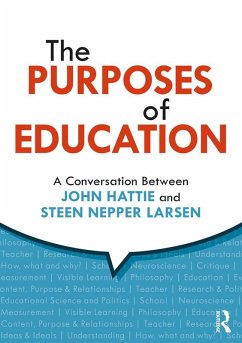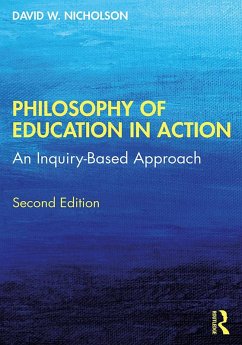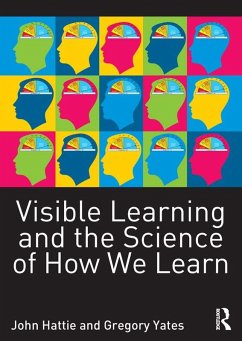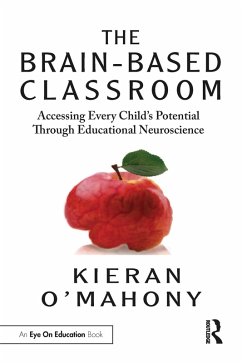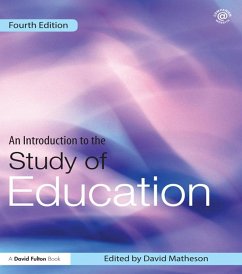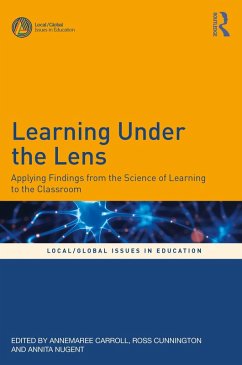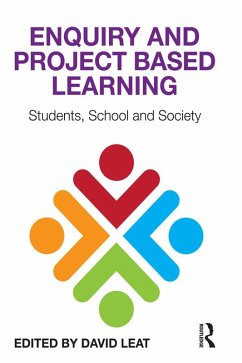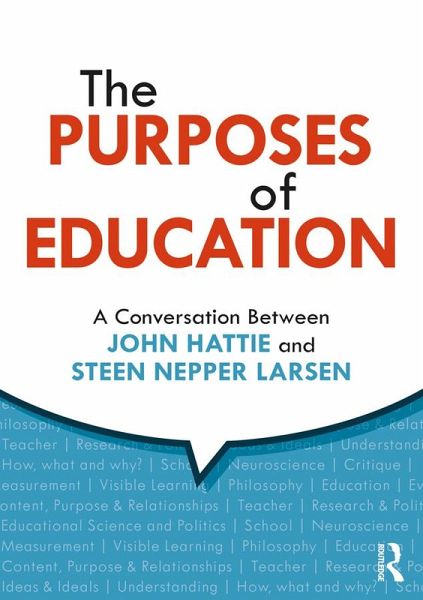
The Purposes of Education (eBook, ePUB)
A Conversation Between John Hattie and Steen Nepper Larsen
Versandkostenfrei!
Sofort per Download lieferbar
22,95 €
inkl. MwSt.
Weitere Ausgaben:

PAYBACK Punkte
11 °P sammeln!
What are the purposes of education and what is the relationship between educational research and policy? Using the twin lenses of Visible Learning and educational philosophy, these are among the many fascinating topics discussed in extended conversations between John Hattie and Steen Nepper Larsen. This wide-ranging and informative book offers fundamental propositions about the nature of education. It maps out in fascinating detail a coming together of Hattie's empirical data and world-famous Visible Learning paradigm with the rich heritage of educational philosophy. Additionally, it explores ...
What are the purposes of education and what is the relationship between educational research and policy? Using the twin lenses of Visible Learning and educational philosophy, these are among the many fascinating topics discussed in extended conversations between John Hattie and Steen Nepper Larsen. This wide-ranging and informative book offers fundamental propositions about the nature of education. It maps out in fascinating detail a coming together of Hattie's empirical data and world-famous Visible Learning paradigm with the rich heritage of educational philosophy. Additionally, it explores the inevitable questions of the purpose of education and the development of students in a learning society.
Part clash of cultures, part meeting of minds, always fascinating and illuminating, this intriguing book will inspire teachers, students, and parents at all levels of the educational system - from kindergarten through school to university.
Conversations include:
What are the purposes of education?
Does educational data speak for itself?
What is the role of the teacher?
Is learning a visible phenomenon?
Is it important to teach and learn specific subjects?
What is the role of neuroscience research?
What is the relationship between educational research and educational politics?
What is the role of the state in education?
Part clash of cultures, part meeting of minds, always fascinating and illuminating, this intriguing book will inspire teachers, students, and parents at all levels of the educational system - from kindergarten through school to university.
Conversations include:
What are the purposes of education?
Does educational data speak for itself?
What is the role of the teacher?
Is learning a visible phenomenon?
Is it important to teach and learn specific subjects?
What is the role of neuroscience research?
What is the relationship between educational research and educational politics?
What is the role of the state in education?
Dieser Download kann aus rechtlichen Gründen nur mit Rechnungsadresse in A, B, BG, CY, CZ, D, DK, EW, E, FIN, F, GR, HR, H, IRL, I, LT, L, LR, M, NL, PL, P, R, S, SLO, SK ausgeliefert werden.




